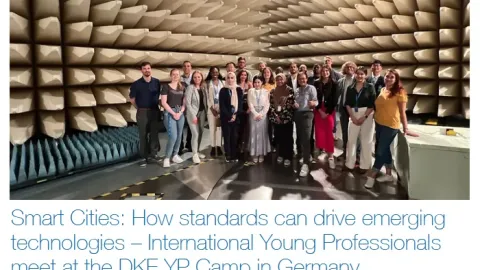News Europe
Please note that you have to be a registered member with paid membership in order to see full articles.
Become a MemberSelected News
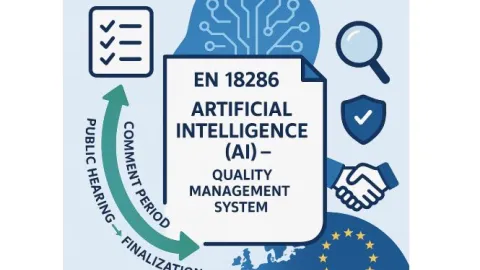
EU: Public Consultation Opens on EN 18286, First Standard Supporting the AI Act
The first European standard designed to support the European Union’s Artificial Intelligence Act (EU AI Act), EN 18286, has been released for public consultation.
France Makes Nutri-Score Labeling Mandatory, But Excludes Traditional Food Products
France’s National Assembly has approved a measure making Nutri-Score labeling mandatory on most food packaging, but excluding products with protected designations such as AOP, AOC, or IGP.
NATA Accreditation Can Help Australian Companies Meet France’s New Fast Fashion Law
France is introducing a new law to curb the environmental impact of fast fashion - low-cost, trend-driven clothing that is produced rapidly and often discarded after minimal use.
NEN Launches NPR 5333 to Improve Oversight of Agile IT Projects
The Netherlands Standardization Institute (NEN) has released NPR 5333:2025, a new guideline that helps organizations maintain control over agile-style IT development.
October Issue of AccrediaLetter Highlights New Anti-Corruption Certification
The October 2025 edition of AccrediaLetter, the monthly newsletter of Accredia,Italy’s national accreditation body, focuses on new developments in accredited certification and quality infrastructure.
Germany Marks 50 Years of the National Standards Agreement
The German Institute for Standardization (DIN) and the Federal Ministry for Economic Affairs and Climate Action (BMWE) celebrated the 50th anniversary of the Standards Agreement on November 6 at DIN’s headquarters in Berlin.
Applications Open for Quality Austria’s 2026 Quality Awards
The call for entries is now open for the 2026 Quality Awards organized by Quality Austria and the Austrian Association for Quality (ÖVQ).
DANAK Updates AMC 17 as New Danish Rules Tie Accreditation to Climate Reviews
Denmark’s accreditation body DANAK has issued a revised version of AMC 17,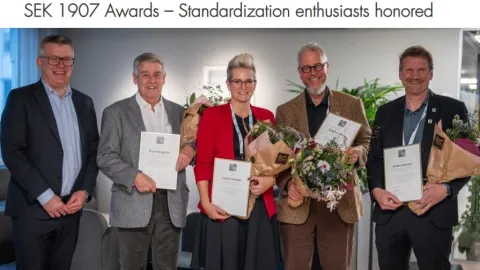
Five Swedish Experts Honored at SEK 1907 Awards Ceremony
Five professionals were recognized during SEK Standard Week 2025 with the SEK 1907 Awards for their outstanding contributions to the development of electrical standards in Sweden.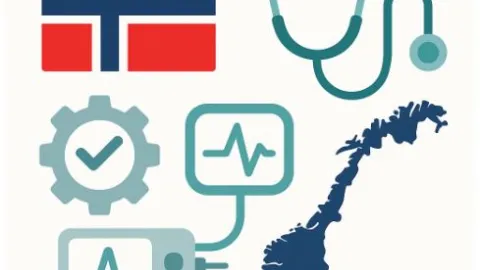
Standard Norway to Establish National Committee on Medical Device Standards
Standard Norway (SN) is creating a new national mirror committee, SN/K 113, to contribute to international standardization on quality management for medical devices.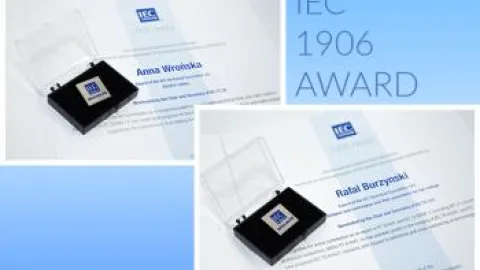
Anna Wrońska and Rafał Burzyński Receive IEC 1906 Award
Polish experts Anna Wrońska and Rafał Burzyński have received the prestigious IEC 1906 Award for their contributions to international electrotechnical standardization.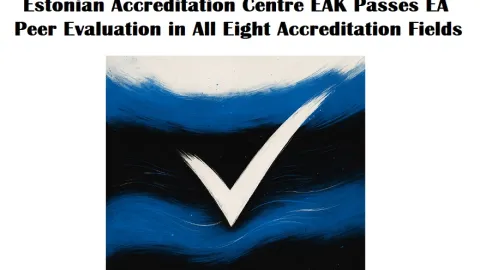
Estonia’s EAK Passes EA Peer Evaluation in All Eight Accreditation Fields
The Estonian Accreditation Centre (EAK) has successfully passed its re-evaluation by the European co-operation for Accreditation (EA) and remains an EA Multilateral Agreement (MLA) signatory across eight fields.Global News
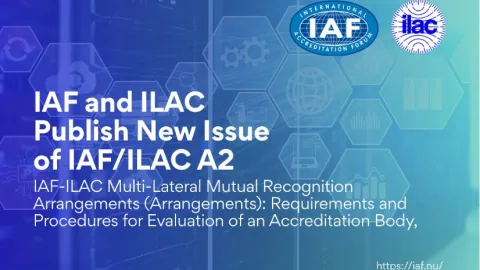
IAF and ILAC Publish New Issue of IAF/ILAC A2 for Evaluating Accreditation Bodies
The International Accreditation Forum (IAF) and the International Laboratory Accreditation Cooperation (ILAC) have published a new issue of IAF/ILAC A2: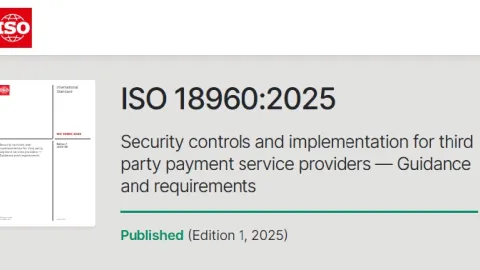
South Korea Leads Release of ISO 18960 Standard on Third Party Payment Security
South Korea has led the development of ISO 18960:2025, a new international standard that sets security guidelines for third party payment service providers.
ISO Annual Meeting 2025 Heads to Rwanda
The International Organization for Standardization (ISO) Annual Meeting 2025 will take place from October 6 to 10 in Kigali, Rwanda,
IEC Survey Shows Global Citizens Demand Stronger Action on Renewable Energy
The International Electrotechnical Commission (IEC) has released a new study showing overwhelming public support for a more sustainable future,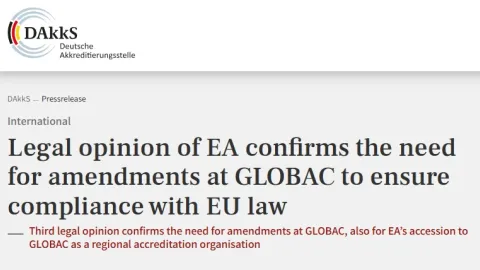
EA Legal Opinion Confirms GLOBAC Must Amend Statutes for EU Compliance
A legal review commissioned by the European co-operation for Accreditation (EA) has concluded that the planned international body GLOBAC must amend its documents to comply with European Union law.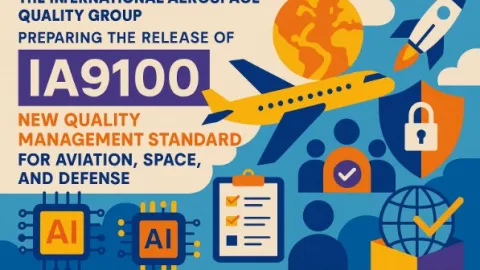
What to Expect With Revision of Benchmark Aerospace QM Standard as AS9100 Transitions to IA9100
The International Aerospace Quality Group (IAQG) is preparing the release of IA9100, the new quality management standard that will replace AS9100 for aviation, space, and defense.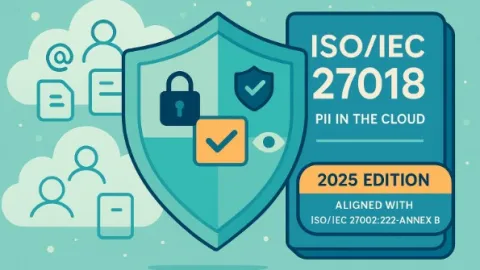
ISO 27018 Updated to Strengthen Data Protection in Public Cloud Services
The new ISO/IEC 27018:2025 is the third edition of the guideline for protecting personally identifiable information (PII) in public cloud services where providers act as data processors.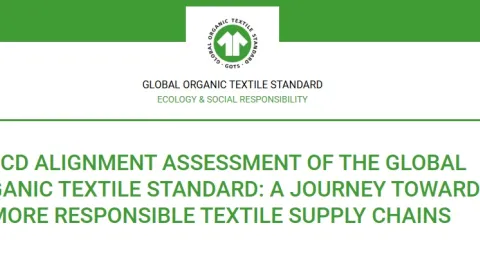
OECD Endorses GOTS, Recognizing Its Growing Social Dimension
The Organisation for Economic Co-operation and Development (OECD) has reviewed the Global Organic Textile Standard (GOTS) Version 7.0,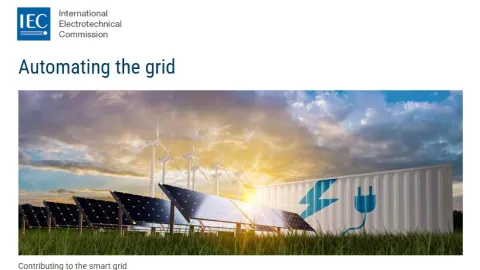
IEC TS 60255-216-1 Standardizes Communication for Smart Grid Protection Devices
The International Electrotechnical Commission (IEC) has published a new standard that sets common rules for how protection devices in the power grid communicate digitally so they can work together reliably.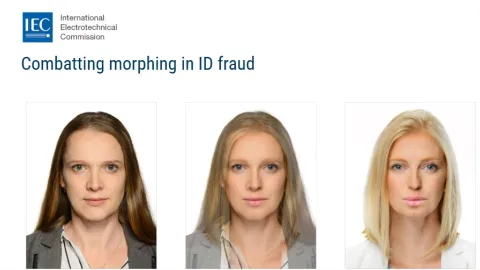
Addressing Biometric Fraud in Identity Documents With New ISO 20059
A new international standard, ISO/IEC 20059, has been launched to strengthen biometric systems against morphing attacks.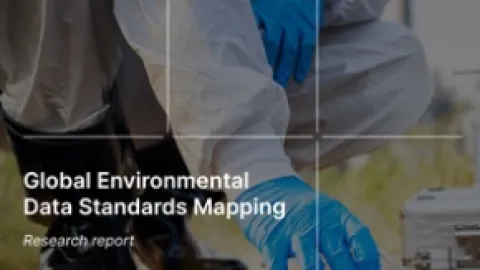
Global Report by Standards Australia and ISO Maps 1,122 Environmental Standards
Standards Australia and the ISO have launched the first edition of the Global Environmental Data Standards Mapping report,